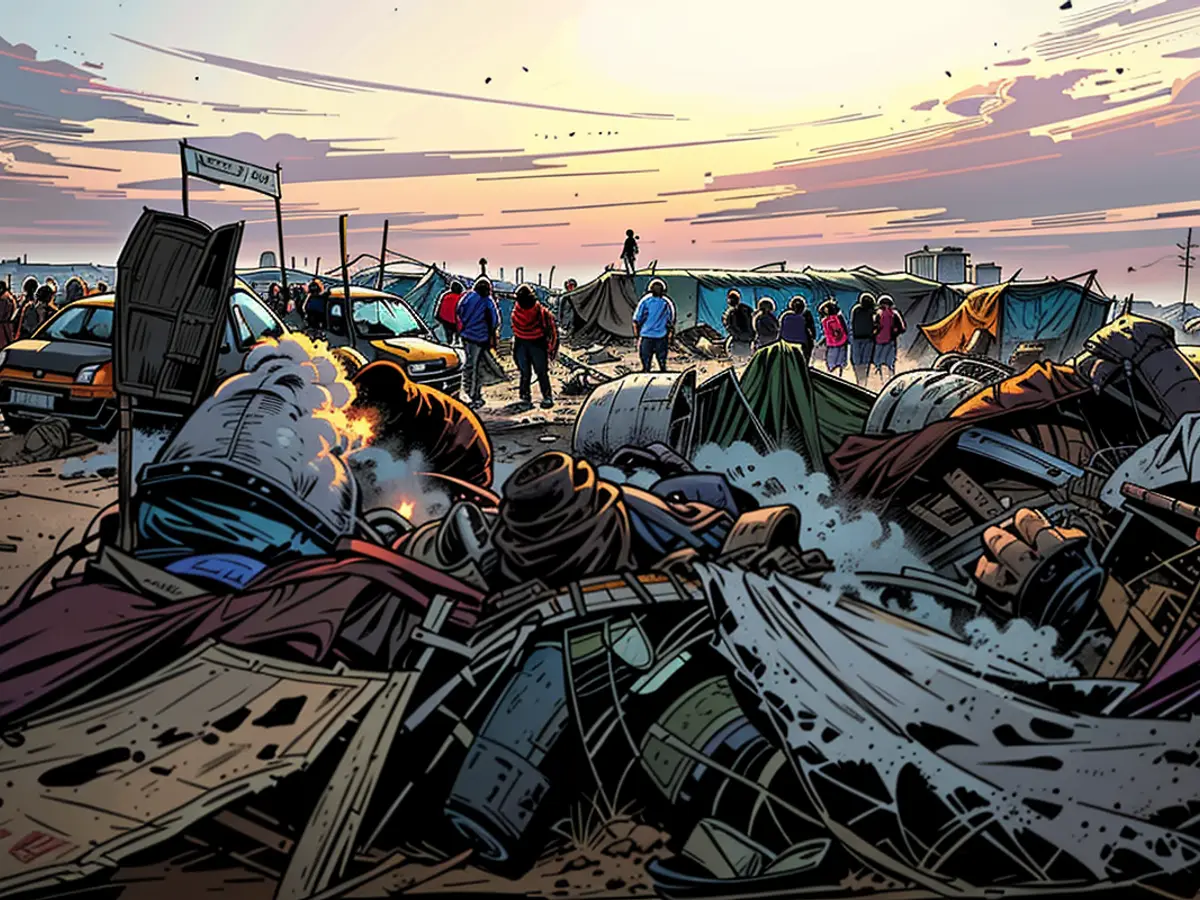War in the Middle East - Hezbollah attacks Israel with hundreds of rockets and drones
The Hezbollah militia in Lebanon launched a large-scale attack on the Israeli border on Thursday. Over 200 Katyusha rockets and numerous drones were reportedly targeted at ten Israeli military posts, according to the radical-Islamic organization. This was a response to the killing of a high-ranking Hezbollah commander in the South of Lebanon on Wednesday. The Israeli military confirmed the latest barrage and retaliated by attacking villages in Lebanon where launching pads were installed. Hezbollah is allied with Hamas, against which Israel is fighting a war in the Gaza Strip. Israel's government was planning to discuss a new Hamas position regarding a plan for a ceasefire on Thursday evening.
Hezbollah declared that it had fired over 100 Katyusha rockets at an Israeli military base in the occupied Golan Heights. Another attack was carried out with Iranian Falaq rockets on a post in the city of Kiryat Shmona near the Israeli-Lebanese border. Hezbollah justified its latest attack with the killing of Mohammed Nasser – security sources reported that he was one of the highest-ranking commanders to have been killed so far in the conflict.
At a memorial service for Nasser, a high-ranking Hezbollah representative hinted that the Militia would expand its attacks in the future. New targets would be taken into consideration, which "the enemy could not previously imagine could be hit."
Israel repels Hezbollah attack
The Israeli military stated that around 200 projectiles and over 20 aerial targets had been fired from Lebanon towards Israeli territory. Several of them were intercepted by the air defense and fighter jets. Some drones and anti-aircraft ammunition caused fires. According to the Israeli Red Cross, no one was injured.
Since the start of the Gaza War in early October, violence in the Israeli-Lebanese border area has significantly increased. The US, Egypt, and Qatar have been trying to mediate a ceasefire and the release of the remaining 120 Israeli Hamas hostages for months.
Hamas issues statement to Israel
Here lies a proposal for a ceasefire on the table, which US President Joe Biden made public at the end of May. On Wednesday, Israel received a new statement from Hamas regarding this matter, which the government of Prime Minister Benjamin Netanyahu is now considering. Netanyahu was planning to convene a security cabinet meeting for the evening, his office announced. Prior to this, Netanyahu also wanted to explore the proposals of the radical-Islamic Palestinian group in the indirect talks for a ceasefire.
The US, Egypt, and Qatar have been trying to broker a ceasefire and the release of the remaining 120 Israeli Hamas hostages since months. Hamas demands an end to the war and a full Israeli withdrawal from the Gaza Strip, while Israel is only willing to agree to temporary ceasefires and aims to dismantle Hamas.
- Despite the ongoing ceasefire discussions between Israel and Hamas, the situation along the Israeli-Lebanese border intensified with Hezbollah launching a drone attack and firing over 100 Katyusha rockets towards Israeli military posts in the Golan Heights and Kiryat Shmona.
- The Israeli military, in response to Hezbollah's attacks, engaged in retaliatory strikes against suspected launching pads in Lebanon, demonstrating their readiness to protect their borders.
- The escalation in the Middle East comes after the killing of a high-ranking Hezbollah commander in the South of Lebanon, which prompted the militia to launch a large-scale attack on Israel.
- Hezbollah's actions in Lebanon highlight the complex geopolitical landscape of the region, with the group allied with Hamas, which is currently engaged in a conflict with Israel in the Gaza Strip.
- The ongoing tensions between Israel and its neighbors, including Lebanon and the Gaza Strip, pose a significant challenge for international efforts to broker a lasting peace in the Middle East.
- The US, Egypt, and Qatar have been actively working towards a ceasefire and the release of the remaining Israeli Hamas hostages, recognizing the importance of finding a diplomatic solution to the ongoing violence.









